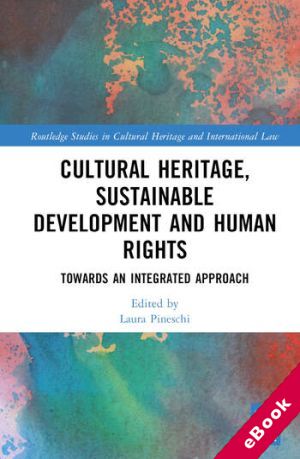
The device(s) you use to access the eBook content must be authorized with an Adobe ID before you download the product otherwise it will fail to register correctly.
For further information see https://www.wildy.com/ebook-formats
Once the order is confirmed an automated e-mail will be sent to you to allow you to download the eBook.
All eBooks are supplied firm sale and cannot be returned. If you believe there is a fault with your eBook then contact us on ebooks@wildy.com and we will help in resolving the issue. This does not affect your statutory rights.
The importance of cultural heritage - in both its tangible and intangible forms - to sustainable development and its economic, social and environmental components is increasingly evident in the recent practice of intergovernmental and non-governmental organizations at the universal and regional level.
Due consideration for the integration of the cultural dimension in the implementation of Agenda 2030 has begun to grow in various international fora, including initiatives to emphasize the role and contribution of tangible and intangible heritage as drivers and enablers of sustainable development. It has also been recognized that the inherent links between cultural heritage and sustainable development cannot be correctly addressed without taking into account their various implications for the effective enjoyment of all human rights, including cultural rights.
This book offers a thorough academic investigation on the importance of cultural heritage to sustainable development and cultural rights from an international law perspective. Providing an in-depth review of the possible intersections between cultural heritage, sustainable development and cultural rights and the limits of the current legal and institutional framework, it will be of interest to researchers and scholars of international law, cultural heritage law, environmental law and human rights law.